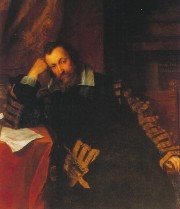Sir Charles Percy, and the Essex rebellion
“Francis, brother of the first Mary Fitton [b 1529] (who married the first Sir Richard Leveson), took as wife Katherine Nevill, widow of the eighth Earl of Northumberland.
Her son, Sir Charles Percy of Dumbleton, Gloucester, had a lively interest in the plays of Shakespeare; indeed a letter of his in the State Papers, Domestic quotes ‘Justice Silence or Justice Shallow’.
It was he who persuaded the players of Shakespeare’s Company at the Globe to revive the ‘old’ play of the deposition of Richard II; and after dining at Gunter’s, the day before the Essex rising, in company with Lord Monteagle, Sir Christopher Blount, Sir Charles Percy, Edward Bushell and others,
he crossed the Thames to the Globe to witness this most treasonable performance. That the players had been given forty shillings more than their usual payment was suspicious enough, and had Sir Charles Percy stuck to his plays for their own sake, leaving treason to theatrical counterfeit, he would have kept his head on his shoulders. Being with Southampton, Shakespeare’s patron and friend, a supporter of the ill-starred Essex, Percy was executed, and the Globe actors severely censured for their afternoon’s work” (Keen 116, 117).
“ . . . Sir Charles Percy, brother of the Earl of Northumberland, of whom we know one interesting fact. He had married a Miss Cocks, and through her had become Lord of the Manor of Dumbleton in Gloucestershire.
He found the society and intellectual atmosphere there very dull, and he heartily endorsed Shakespeare’s view of the inhabitants. Then, on the 27th day of an uncertain December, queried in State Papers as 1600?, he wrote to his friend Carleton, ‘I am so pestered with Country business that I cannot come to London. If I stay here long, you will find me so dull, that I shall be taken as a Justice Silence or a Justice Shallow, therefore take pity of me, and send me news from time to time, the knowledge of which, though perhaps it will not exempt me from the opinion of a justice Shallow in London, yet will make me pass for a very sufficient gentleman in Gloucestershire.’ . . .
It is possible that this letter belongs to the end of the previous year, but that Essex’s need was sufficient to bring him to London, the place where news were manufactured. At any rate, we find him among the Drury House band in February.
It was on his suggestion that Richard II was played. It is a possibility the first part of Henry IV Pt. I, which in 1597 included old Blunts and Vernons and Percys among its characters, and to Henry IV Pt. II, which in 1598 and introduced Justices Shallow and Silence to the gorgeous humours of Falstaff.
Also, he wanted to know what the joke was which made the assembled gallants at Plymouth so wonderfully merry in 1597 over Sir Robert Cecil’s ‘conceipt of Richard II’ according to Sir Walter Raleigh. It is quite possible that all the ‘evil intent’ of the play had been conceived and inserted by unwise friends and interested enemies of the Earl. It was one of their methods of attack”
(Stopes, The Third Earl . . . , 187, 188).
* * *

No comments:
Post a Comment